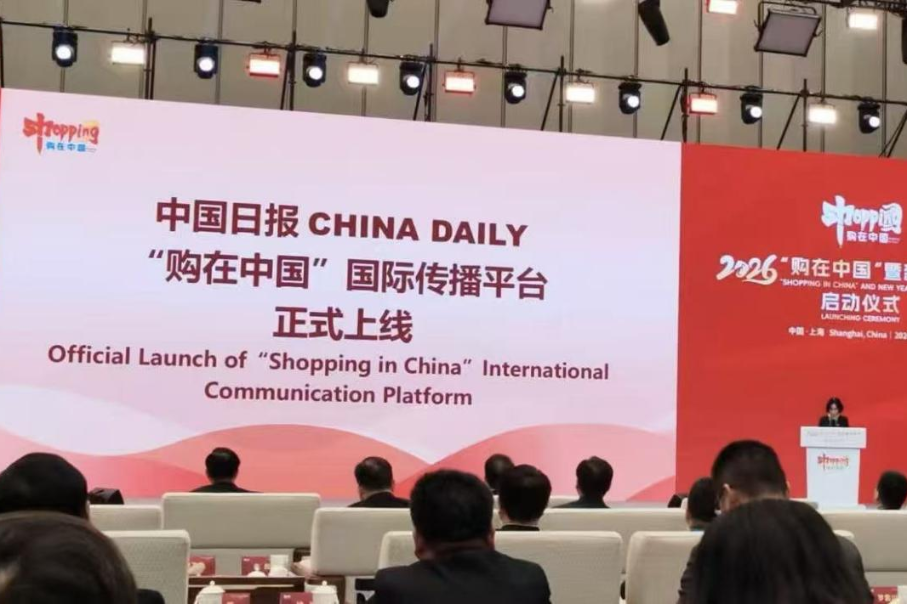Free trade zone has inbuilt advantages

An offshore financial center that differs from all the others
After the US lifted its embargo following president Richard Nixon's visit to Beijing in 1972, China began learning from Western economic examples. The establishment of a series of special economic zones was part of the lesson China learned, which has now prompted it to set up the Shanghai free trade zone.
The FTZ demonstrates China's determination to build Shanghai into a global economic hub. The FTZ is aimed at helping develop industries by promoting free and convenient trade, and acting as a transit point for trade. The zone is also expected to liberalize the service sector, including financial innovations such as offshore financial services. In short, the Shanghai FTZ is expected to set an example for other Chinese cities on how to facilitate free, unfettered trade.
But people have to realize that the FTZ is not aimed at yielding short-term gains. This is important because after Premier Li Keqiang talked about the dividends of reform, many investors, especially in the financial and real estate sectors, started speculating about making easy money thanks to the changes in regulations. Their dream of making easy money was even echoed by some media outlets, which construed that capital programs would be thrown open and the yuan would float freely in the FTZ.
Anybody with even a basic knowledge of economics would know how ridiculous these speculations are. Free flow and exchange of the yuan is impossible unless the Shanghai FTZ has its own currency, which China will never consider because it's akin to the country committing economic suicide.

Instead of changing rules frequently, as many speculators have dreamt, the FTZ should concentrate on building a firm base for the real economy and offer entrepreneurs a stable, promising environment. The biggest advantage of the Shanghai FTZ, as well as the key to its success, lies in transit trade of goods.
The presence of four experimental zones with favorable tax policies in the adjoining areas of the FTZ is proof that their main function will be to help promote trade. This is something that distinguishes the Shanghai FTZ from most other free ports in the world. It will not become an offshore financial center without the support of the real economy, because such a center will only fill the pockets of investors with quick money and not help increase ordinary people's income or offer them more jobs. Trade of goods should thus form the basis of the Shanghai FTZ's financial innovations.
Of course, that doesn't mean the FTZ will not help develop financial and other modern service industries. In fact, by developing offshore financial services, the Shanghai FTZ can promote the internationalization of the yuan.
For decades, investors had been parking their assets in the US dollar or the Swiss franc. Now, with China's rapid economic growth and bright future, it is highly likely that the yuan will find their favor. But for that to happen, China has to make financial innovations and offer more services to meet the needs of Chinese as well as foreign nationals. Authorities should know that the more China opens up and develops its financial sector, the more foreigners will invest in the country's financial assets.
But, unlike in developed countries, a majority of the foreign investors in China will come from emerging market economies, which in turn will force their Western partners to accept the yuan as a currency of transaction.
The likelihood of such a trend is becoming more obvious because of the crisis triggered by major Western central banks' decision to taper off their quantitative easing policies and the fall then in prices of primary products. China as a stable and fast-developing economy is likely to become more appealing to capital from the emerging market economies, making the yuan a new favorite of investors.

There are three types of offshore financial centers. In cities like London and Hong Kong, which have long been financial centers, offshore financial services are mixed with domestic financial services, and the capital flow is highly liberalized.
In the second type, established and encouraged by local governments, the authorities usually grant non-residents favorable tax policies, but forbid them from running domestic business. In these centers, such as New York, Singapore, Tokyo and Bangkok, offshore financial services are separated from domestic financial services.
Centers that make up the last type, more generally called tax havens, usually have favorable tax policies that attract many financial institutions to register their businesses, which, however, are mostly conducted in other countries. The Virgin Islands, the Bahamas, Bermuda and Cyprus are examples of such offshore financial hubs.
The Shanghai FTZ differs from all three. Its offshore financial services may be more like London's and Hong Kong's, but in some parts of the zone, offshore and domestic businesses cannot be mixed. This arrangement, combined with the support from the real economy, will give the Shanghai FTZ a great advantage in global competition.
The author is a researcher at the International Trade and Economic Cooperation Institute of the Ministry of Commerce. The views do not necessarily reflect those of China Daily.
(China Daily Africa Weekly 10/25/2013 page12)
Today's Top News
- US military action in Venezuela tramples over international law
- National railways carry 4.255b passenger trips in 2025
- Chinese capital declares major victory against air pollution
- US' seizure of Maduro has no legal basis
- US faces domestic criticism over military operation in Venezuela
- Captured Maduro, wife arrive in New York by plane





























